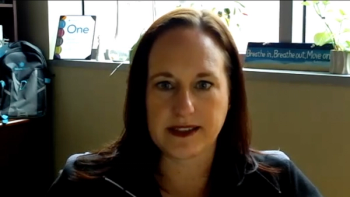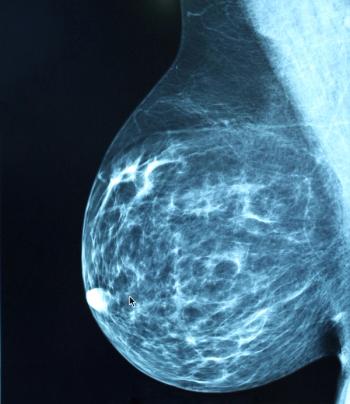
Oncology NEWS International
- Oncology NEWS International Vol 8 No 6
- Volume 8
- Issue 6
Medicare Reform Compromise Fell Victim to Complex Politics
ALEXANDRIA, Va-The failure of the National Bipartisan Commission on the Future of Medicare to issue a report resulted from complex political calculations made by various players in the process. “Behind the political differences lies a legitimate difference on the role of the government in health care,” Washington attorney John S. Hoff said at the 25th Annual Meeting of the Association of Community Cancer Centers (ACCC).
ALEXANDRIA, VaThe failure of the National Bipartisan Commission on the Future of Medicare to issue a report resulted from complex political calculations made by various players in the process. Behind the political differences lies a legitimate difference on the role of the government in health care, Washington attorney John S. Hoff said at the 25th Annual Meeting of the Association of Community Cancer Centers (ACCC).
The Commission and its non-report nonetheless constitute the first step in something that will happen anyway, he said, ie, movement toward a reimbursement system that better fits the demographic, medical, and fiscal realities of the nation in the coming decades.
The 17-member Commission missed by one vote achieving the supermajority of 11 needed to report out a proposal that would have combined elements of liberal plans to give the government more power to contract for Medicare services with selected providers with elements of conservative plans to provide beneficiaries a fixed sum to buy their own private health insurance.
Based on the Federal Employee Health Benefit Plan, it would have raised the age of eligibility, made drug coverage available for everyone, provided free drugs for the poor, and combined Medicare Parts A and B for funding and deductibles. As a premium support plan, it would have maintained the basic commitment of the traditional Medicare defined-benefit plan in a more efficient system.
Solvency of Parts A and B
Originally feared to be depleted in 2002, the Hospital Insurance Trust Fund that supports Medicare Part A was made solvent until 2008 by cutting reimbursements for hospital costs, limiting home health care, and transferring part of home health care to Part B. Part B, however, is an open draw on general revenues, Mr. Hoff said.
The real issue, he said, is total spending, not the solvency of the Trust Fund. By the year 2030, the present system, which now costs $247 billion a year, would cost between $2.2 and $2.9 trillion, or between 28% and 38% of the federal budget and between 6.3% and 8.5% of the gross domestic product.
Medicare, if unchanged, he said, will consume two to three times as great a share of resources as it does now, while providing benefits that are already outdated because they do not cover long-term care and outpatient drugs.
When established, Medicare provided open-ended payment for anything doctors ordered, Mr. Hoff said. Attempts to control spending over the years have produced todays complex of fixed prices. Many people now support using market competition rather than price controls to increase efficiency, and favor government-funded private insurance in place of government control of the system.
The premium support plan voted on by the Commission would have reduced the current rate of spending growth by 12%, Mr. Hoff said. It received the support of all the Commissions eight Republicans and two of its nine Democrats.
The plan failed in large part because the White House signaled that it had a different plan, Mr. Hoff said. In his State of the Union message, Clinton announced a plan to save Medicare by applying 15% of the budget surplus. Although this only bails out Part A for a few years and does nothing to control cost, Mr. Hoff said, the public thought it would solve the overall problem.
When Clintons idea was criticized, the President said he would not comment until he received the Commission report. Then, 2 hours before the Commission voted, he declared that the Commissions plan did not meet his principles and said he would produce his own plan later this year. The Senate Finance Committee will likely report out a Medicare bill this year, Mr. Hoff said, adding, however, that passage by Congress is unlikely.
Articles in this issue
almost 27 years ago
Opioids Are Often Ignored for Treating Neuropathic Painalmost 27 years ago
Study Suggests Short Time Interval for Ovarian Cancer Screeningalmost 27 years ago
Your Strengths, Market’s Demands Dictate Marketing Strategiesalmost 27 years ago
First-Line Irinotecan Effective in Advanced Colorectal Canceralmost 27 years ago
Doctor Ponders Popularity of Alternative Medicinealmost 27 years ago
Can Physicians Be Held Liable for Alternative Medicine?almost 27 years ago
Tips on Marketing Your Oncology Practice to Patientsalmost 27 years ago
Biologics Research Promises ‘Synergistic’ Cancer Therapyalmost 27 years ago
Patient Care Costs of Clinical Trials May Be Less Than Standard Carealmost 27 years ago
Sentinal Node Biopsy Finds 98% of Metastic Colon CancersNewsletter
Stay up to date on recent advances in the multidisciplinary approach to cancer.


















































